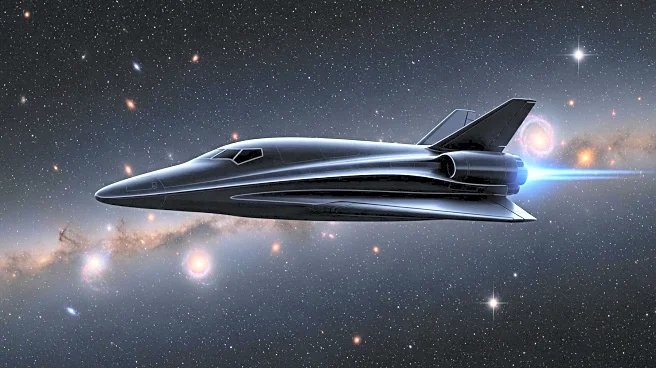What's Happening?
Lockheed Martin has announced a new initiative to study the feasibility of offering the Orion spacecraft as a commercial service. This development was revealed at the International Astronautical Congress, where Lockheed Martin disclosed an agreement with BioAstra, a nonprofit organization, to explore a private astronaut mission using Orion for biomedical research beyond Earth orbit. The mission, named Twin Astra, is inspired by NASA's previous Twins Study, which compared the physiological changes experienced by astronaut Scott Kelly in space with those of his twin brother, Mark Kelly, who remained on Earth. Lockheed Martin aims to transition from traditional NASA contracts to a service model, potentially involving private and international customers.
Why It's Important?
This move by Lockheed Martin signifies a shift towards the commercialization of space travel, potentially opening new markets for space exploration beyond government contracts. By offering Orion as a service, Lockheed Martin could attract private investors and international partners interested in conducting their own space missions. This could lead to increased innovation and competition in the aerospace industry, driving down costs and making space more accessible. The initiative also aligns with broader trends of privatization in space exploration, as companies seek to capitalize on the growing interest in space tourism and research.
What's Next?
Lockheed Martin plans to phase in the service model over the next few Artemis missions, with discussions ongoing about the incremental steps needed for this transition. The company is also exploring technical changes to the Orion service module and alternative launch strategies to support longer missions. The success of this initiative will depend on NASA's willingness to delegate certain responsibilities to Lockheed Martin and the ability to secure financial backing from private and international stakeholders. The outcome could set a precedent for future commercial space endeavors.









